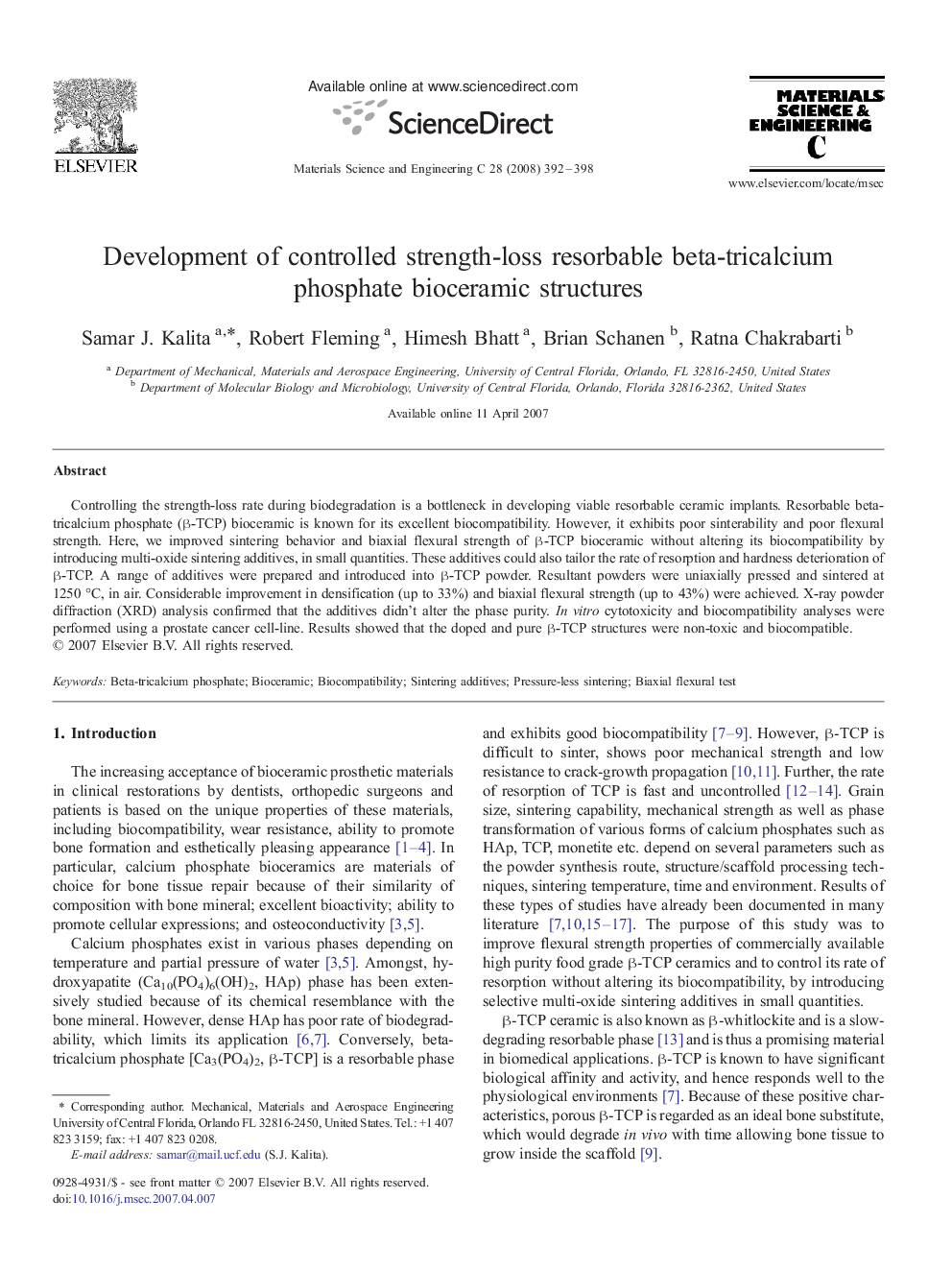| کد مقاله | کد نشریه | سال انتشار | مقاله انگلیسی | نسخه تمام متن |
|---|---|---|---|---|
| 1431207 | 987227 | 2008 | 7 صفحه PDF | دانلود رایگان |

Controlling the strength-loss rate during biodegradation is a bottleneck in developing viable resorbable ceramic implants. Resorbable beta-tricalcium phosphate (β-TCP) bioceramic is known for its excellent biocompatibility. However, it exhibits poor sinterability and poor flexural strength. Here, we improved sintering behavior and biaxial flexural strength of β-TCP bioceramic without altering its biocompatibility by introducing multi-oxide sintering additives, in small quantities. These additives could also tailor the rate of resorption and hardness deterioration of β-TCP. A range of additives were prepared and introduced into β-TCP powder. Resultant powders were uniaxially pressed and sintered at 1250 °C, in air. Considerable improvement in densification (up to 33%) and biaxial flexural strength (up to 43%) were achieved. X-ray powder diffraction (XRD) analysis confirmed that the additives didn't alter the phase purity. In vitro cytotoxicity and biocompatibility analyses were performed using a prostate cancer cell-line. Results showed that the doped and pure β-TCP structures were non-toxic and biocompatible.
Journal: Materials Science and Engineering: C - Volume 28, Issue 3, 1 April 2008, Pages 392–398